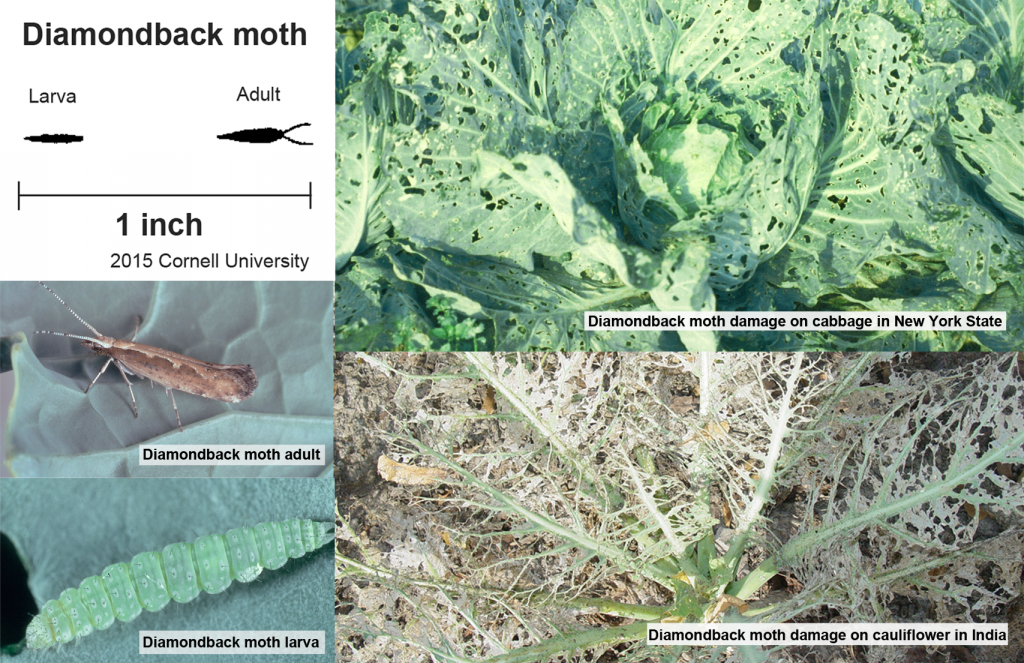
A US regulatory agency is seeking comments on a proposal to conduct open field tests of a genetically engineered diamondback moth that could help control the destructive agricultural pest without the use of insecticides.
Diamondback moth (DBM) caterpillars attack cabbage, broccoli, cauliflower and other Brassica crops, causing global crop losses estimated at $4 billion to $5 billion annually. Farmers typically try to control it by frequently spraying insecticides on crops, but this has led to environmental problems and frequent instances of insecticide resistance.
Dr. Anthony Shelton, an entomology professor at Cornell University, has been working with a British company, Oxitec, on another approach to reduce populations of the pest. They are using the tools of genetic engineering to give male diamondback moths a self-limiting gene that is passed on to their offspring, killing females before they reach reproductive age.
The process affects only diamondback moths, and unlike pesticide applications, would leave beneficial insects unharmed. Animals that eat the GE moths also would suffer no ill effects because the added gene is not harmful.
Our greenhouse and caged trials in the field indicate that this non-toxic, species-specific technology can be useful for managing this national and global pest, Shelton said. I believe it can be an important tool in the toolbox for managing DBM.
Shelton now hopes to conduct open field trials to determine how well the self-limiting diamondback moths perform in an agricultural setting in New York State. But first, his project must be approved by federal and state regulators.
The US Department of Agriculture s Animal and Plant Health Inspection Service (APHIS) has issued a preliminary favorable and scientifically-based Environmental Assessment (EA) for the trial. It also opened a 30-day public comment period, which ends May 19.
APHIS previously issued a permit for the field releases, but it had to be withdrawn because of administrative errors by the agency.
Scientists who have already submitted comments note that the technology poses minimal risk, and is needed to control this difficult pest in an environmentally friendly manner.
The EA can be viewed here.
To submit a comment electronically, click here. Comments should emphasize the scientifically-based process used by APHIS in its preliminary favorable EA and the need to conduct these experiments to evaluate this environmentally friendly technology.
Comments also may be submitted by mail to Docket No. APHIS-2014-0056, Regulatory Analysis and Development, PPD, APHIS, Station 3A-03.8, 4700 River Road Unit 118, Riverdale, MD 20737-1238.
